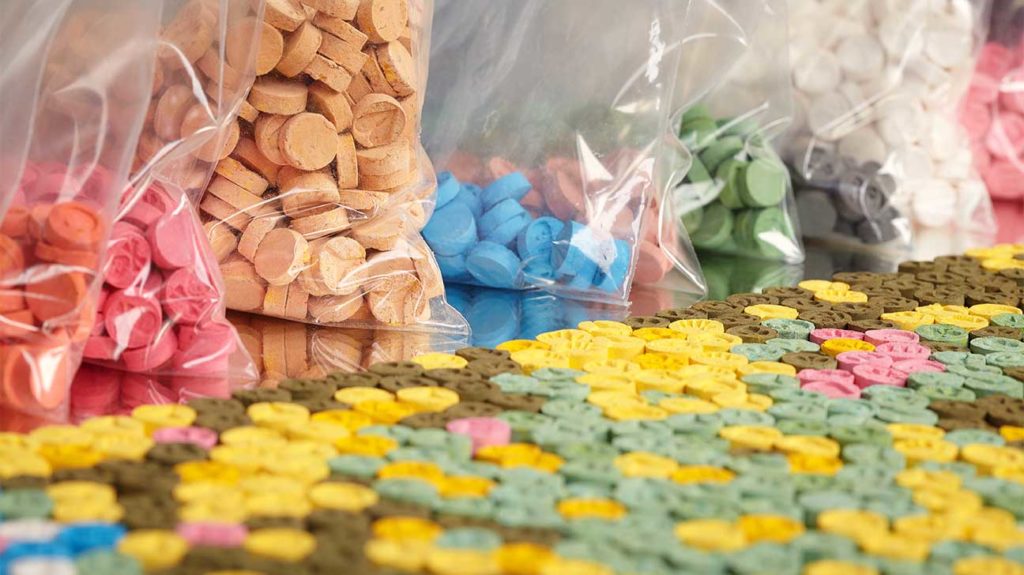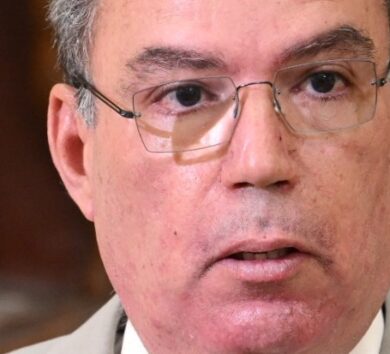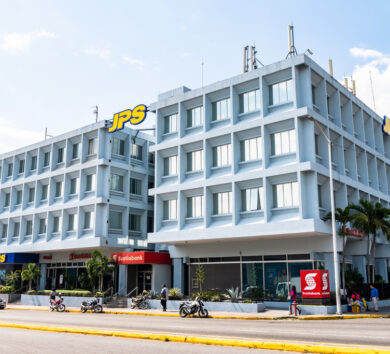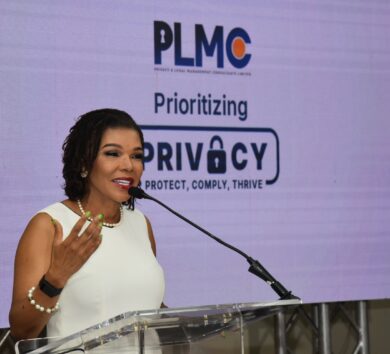

Jamaica’s Minister of Health Dr Christopher Tufton recently addressed the surge in substance use in schools during a press conference with the National Council on Drug Abuse. Here are his comments:
Substance use has been a trending topic, particularly with reference to our youth. Reports of pill parties have surfaced in the local media, accompanied by a growing concern of increased substance use among secondary students.
Globally, emerging concerns that are noted include new psychoactive substances that present a serious challenge to public health and heighten the demand for drug policies. These drugs are unpredictable, poorly understood and are becoming widely accessible.
What we are witnessing, ladies and gentlemen, is a normalising of drug use especially among youth. This is symptomatic of a public health threat warranting urgent response. What is more, despite the proven dangers, the challenge of rising drug use tells us that other issues are intersecting and ballooning: psychosocial problems; grief; trauma; and more.
The health risks are real and those most vulnerable include our young people. It is critical now that we move aggressively to address this issue. Today serves to highlight substance use among secondary students as a matter for national attention. Our coordinated response is an attempt at intervening before things worsen.
OVERVIEW OF THE RAPID ASSESSMENT

There are signs that the COVID-19 pandemic is connected to increased substance use, with local data from the NCDA pointing to increased use of alcohol and cannabis as a result of anxiety, depression, loneliness, financial problems and associated distresses. For a closer look at the impact on youth, a Rapid Situation Assessment was conducted in May 2022 in 13 secondary schools. The assessment involved 160 students from grades eight to 10 and took place across 13 parishes. Additionally, 20 guidance counsellors were interviewed.
The assessment sought to disclose, among other things, perceptions on the substances being used by adolescents and changes in patterns of use. While it is recognised that a rapid situation methodology is not statistically representative of the prevalence of substance use, this approach allows qualitative data to be captured. Essentially, this is a snapshot giving us a look at the realities faced by our youth.
MAIN FINDINGS
The rapid assessment offers key insights.
- To begin with, the party drug “molly” emerged as among the popular substances in use by adolescents. What is worrying, is that participants in all focus groups reported that “molly” has become a widespread substance in Jamaica.
- A greater part of the concern is the ease of access and exposure to the drug. Students identified purchasing pills online or accessing it in communities. Others were knowledgeable about its effects having witnessed their peers with it. What drug experts know about “molly” is that it enhances mood producing a stimulant-like effect, drives the propensity for sexual activity and has high-abuse potential. It also damages brain function and cognitive development.
- At the same time, vaping of tobacco products and cannabis, and the consumption of edibles are also dominating the drug space with our youths. The findings of this assessment reveal a troubling ease of access to e-cigarettes for youngsters – with adults as their enablers. It also hints at the dangers of the so called ‘fun’ flavours of e-cigarettes, which are often marketed as safe alternatives to smoking. But this is not true; e-cigarettes are not safe.

E-cigarettes deliver a heavy dose of nicotine that reportedly alters connections between brain cells and can cause problems with not only learning but also mood and impulse control. The use of e-cigarettes is also reported to worsen anxiety and depression while setting youngsters up for life-long addiction and the smoking of tobacco cigarettes later. This is especially why we are now progressing with the Tobacco Control Act (2020) to protect youth from the dangers associated with tobacco and its products.
APPEAL
There are grave concerns to address with our youth. I want to appeal to parents and guardians to talk to and monitor their children. Invariably, if we don’t intervene, we may very well have a crisis on our hands. In conjunction with substance use, the combination of issues affecting our students are urgent and alarming. In fact, this rapid assessment uncovered associated issues, from struggles with mental wellness to include anxiety, depression and suicidal ideation.

NEXT STEPS
- We recognise the need for further research. A rapid assessment does not measure prevalence, however it has provided us with preliminary data and this is a starting point. Already, planning is underway for a National Drug Prevalence Survey, which is to provide key insights into substance use among the general population from 12 to 65 years old. It came out of need for evidenced-based research to guide the alcohol policy and the need for a full assessment on all substance use, including tobacco and other new and emerging psychoactive substances. We estimate that the Survey will cost us approximately $16 million. The last study of this nature was done in 2016 and so we are pushing to get this underway immediately.
- Current data will also be gathered through the Global School Health Survey, Global School Health Policies and Practices Survey, on the patterns of substance use among a subset of the secondary school population.
- Plans are also in train for updating the School Drug Policy. The National Council on Drug Abuse will coordinate this in conjunction with the Ministry of Education and Youth.
- It is also important for us to improve access to help and the capacity of the public health system to respond. The NCDA’s Helpline is a vital resource to which we will provide greater visibility given the current realities brought out by this assessment.
- Additionally, our mental health programme will form a critical part of the dialogue to support our youth. This includes strengthening existing partnerships and forging new ones so that we can point youngsters to multiple access points for help.
- Over the next six months, we will roll out our public education campaign using a multi-channel approach with a number of interventions at the school and community level. This involves town hall meetings, especially as we move to sensitise parents on what to look out for if they that suspect that their children may be using drugs use. Part of the larger conversation that we want to engage the public in involves equipping parents to foster better relationship with their children and allow a safe space for sharing their concerns.Of course, these interventions require the support of our partners and stakeholders across other ministries and organisations. Today is a prime example of the partnerships that we will forge and improve upon.
Drug use represents one of the greatest ills threatening the health and well-being of our youth especially at this time. We are committed to make our best effort to safeguard them from the dangers at hand. This joint press conference signifies our unified response and we invite the support of all relevant stakeholders.







Comments